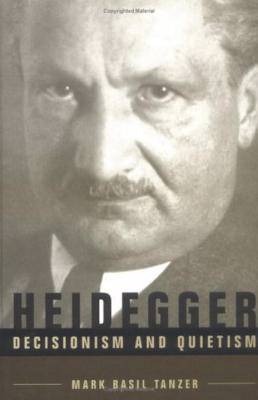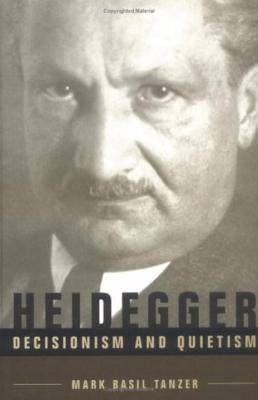
En raison d'une grêve chez bpost, votre commande pourrait être retardée. Vous avez besoin d’un livre rapidement ? Nos magasins vous accueillent à bras ouverts !
- Retrait gratuit dans votre magasin Club
- 7.000.000 titres dans notre catalogue
- Payer en toute sécurité
- Toujours un magasin près de chez vous
En raison de la grêve chez bpost, votre commande pourrait être retardée. Vous avez besoin d’un livre rapidement ? Nos magasins vous accueillent à bras ouverts !
- Retrait gratuit dans votre magasin Club
- 7.000.0000 titres dans notre catalogue
- Payer en toute sécurité
- Toujours un magasin près de chez vous
Description
In recent years the thought of Martin Heidegger has been the target of many attacks, fueled by the fact that he joined the Nazi Party and openly supported Germany's National Socialist regime. A great number of his detractors point to a fundamental irrationalism allegedly lying at the heart of his philosophy, which, it is claimed, encouraged his involvement with National Socialism. Heidegger's rejection of reason and objective, rationally determined standards is believed to imply that practical norms are merely arbitrary conventions without foundation. They are forged either by the arbitrary acts of a radically free human subject ("decisionism," the position of the early Heidegger) or by the equally arbitrary dispensations of the unrestricted power of Being, which is beyond the capability of reason to comprehend ("quietism," the position of the later Heidegger). Both positions, Heidegger's opponents contend, amount to amoral irrationalism.
In this rigorously argued and clearly written discussion of these crucial questions regarding Heidegger's thought, philosopher Mark Basil Tanzer argues that Heidegger's questioning of rationality and his rejection of objectivity did not force him to abandon the idea of norms, or to embrace the arbitrariness of irrationality implied by his critics. Tanzer suggests that Heidegger's critics have fundamentally misunderstood his idea of freedom, the key to which lies in Heidegger's notion of resoluteness. Understood as the individual's realization of freedom or the activity by which Being becomes what it properly is, resoluteness is essentially a moral criterion that is indeterminate but violable. Freedom is thus highly constrained through resoluteness. In this way Heidegger's idea of freedom is quite different from the typical existentialist notion of freedom as unrestricted arbitrariness.
This profound yet accessible analysis makes a major contribution to Heidegger studies.
In this rigorously argued and clearly written discussion of these crucial questions regarding Heidegger's thought, philosopher Mark Basil Tanzer argues that Heidegger's questioning of rationality and his rejection of objectivity did not force him to abandon the idea of norms, or to embrace the arbitrariness of irrationality implied by his critics. Tanzer suggests that Heidegger's critics have fundamentally misunderstood his idea of freedom, the key to which lies in Heidegger's notion of resoluteness. Understood as the individual's realization of freedom or the activity by which Being becomes what it properly is, resoluteness is essentially a moral criterion that is indeterminate but violable. Freedom is thus highly constrained through resoluteness. In this way Heidegger's idea of freedom is quite different from the typical existentialist notion of freedom as unrestricted arbitrariness.
This profound yet accessible analysis makes a major contribution to Heidegger studies.
Spécifications
Parties prenantes
- Auteur(s) :
- Editeur:
Contenu
- Nombre de pages :
- 131
- Langue:
- Anglais
- Collection :
Caractéristiques
- EAN:
- 9781591020615
- Date de parution :
- 01-12-02
- Format:
- Livre relié
- Format numérique:
- Genaaid
- Dimensions :
- 155 mm x 240 mm
- Poids :
- 308 g

Les avis
Nous publions uniquement les avis qui respectent les conditions requises. Consultez nos conditions pour les avis.






